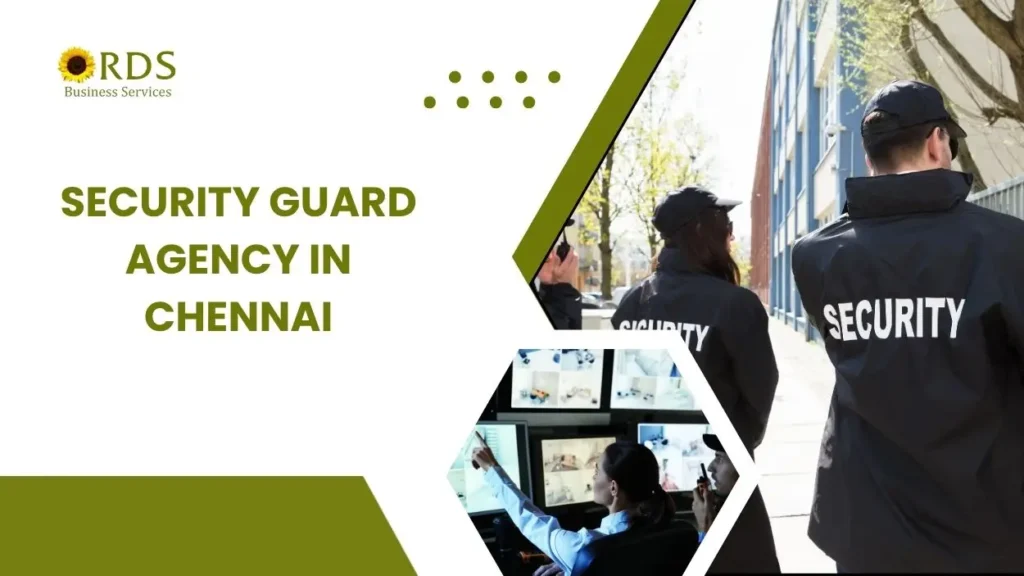Table of Contents
Introduction
In Chennai’s urban landscape, security services are crucial for safeguarding individuals, businesses, and public areas. However, the growing reliance on security services has brought ethical challenges to the forefront. Balancing the need for safety with the responsibility to respect individual privacy rights is a complex task that requires careful consideration and adherence to ethical standards.
In this blog, we’ll explore the ethical challenges faced by security services in Chennai, delve into the delicate balance between privacy rights and security needs, and discuss best practices that can help ensure ethical behavior in the industry. By the end, you’ll gain a comprehensive understanding of the intricate dynamics between ethics and safety in the context of security services.
Understanding the Security Landscape in Chennai
Chennai, a bustling metropolis, is home to a diverse population and a thriving business environment. The city’s rapid growth has brought about a range of security challenges that necessitate the presence of robust security services. From residential complexes to corporate offices, and public spaces to private events, the demand for security services in Chennai is on the rise.
Common Risks and Threats
The security landscape in Chennai is shaped by various risks and threats. These include:
- Criminal Activities: Theft, burglary, and vandalism are prevalent in both residential and commercial areas.
- Corporate Espionage: In a city with a significant number of multinational corporations, protecting sensitive information is critical.
- Public Safety Concerns: Crowded public places and events require security measures to prevent incidents like stampedes or unauthorized access.
- Terrorism and Extremist Threats: Although Chennai has a relatively low incidence of terrorism, the city cannot afford to overlook the potential for extremist activities.
Types of Security Services Offered
To address these challenges, a wide range of security services are available in Chennai:
- Commercial Security: Protection for businesses, including access control, surveillance, and guard services.
- Residential Security: Services designed to protect residential complexes, including gated communities and apartment buildings.
- Corporate Security: Comprehensive security solutions for corporate offices, including cybersecurity, access management, and employee safety protocols.
- Event Security: Specialized services for public and private events, ensuring crowd control, access management, and VIP protection.
The importance of security services in Chennai cannot be overstated, but with this importance comes the responsibility to operate within ethical boundaries.
Ethical Challenges Faced by Security Agencies
As security agencies work to protect clients from various threats, they encounter significant ethical challenges. One of the most pressing issues is the balance between surveillance and privacy.
Surveillance and Monitoring Practices
Security agencies in Chennai often rely on surveillance methods such as CCTV cameras and biometric systems to monitor activities and ensure safety. However, these practices raise ethical questions, particularly when they involve monitoring in public spaces or private properties without explicit consent.
- CCTV Cameras: Widely used for monitoring, CCTV cameras are instrumental in deterring crime and providing evidence. However, their pervasive presence raises concerns about constant surveillance and the potential for abuse.
- Biometric Systems: Technologies like facial recognition and fingerprint scanning offer enhanced security but also pose risks to individual privacy. The storage and use of biometric data must be handled with the utmost care to prevent misuse.
The ethical dilemma here is clear: while these technologies are crucial for maintaining security, they also have the potential to infringe on individual privacy rights.
Privacy Rights vs. Security Needs: A Delicate Balance
The tension between privacy rights and the need for security is a delicate balance that security agencies in Chennai must navigate. On one hand, there is a legitimate need to protect people and property. On the other hand, individuals have a right to privacy, which must be respected.
Privacy Concerns with CCTV and Biometric Surveillance
The use of CCTV cameras in public spaces is a common practice, but it often leads to debates about the extent to which individuals should be monitored. The presence of cameras in places where people expect a certain degree of privacy, such as residential neighborhoods or inside office buildings, can lead to discomfort and mistrust.
Similarly, biometric surveillance, while offering advanced security features, poses significant privacy risks. The collection and storage of biometric data, such as facial recognition or fingerprint data, could be subject to breaches or misuse if not adequately safeguarded.
Legal Frameworks Governing Surveillance
In Chennai, as in the rest of India, there are legal frameworks in place to govern surveillance practices. However, the enforcement of these laws and the adherence to ethical standards by security agencies can be inconsistent. The Personal Data Protection Bill, for instance, outlines the responsibilities of entities that collect and process personal data, but its implementation is still in progress.
Security agencies must operate within these legal frameworks while also considering the ethical implications of their actions. This includes obtaining proper consent for surveillance, ensuring data protection, and being transparent with clients and the public about their practices.
Ensuring Accountability: The Use of Force by Security Personnel
Another critical ethical concern is the use of force by security personnel. While security guards and officers are trained to protect, there have been instances where excessive force has been used, leading to injury or even death.
Guidelines for Appropriate Use of Force
To prevent such incidents, there are clear guidelines that security personnel should follow regarding the use of force. These guidelines typically emphasize the need for:
- Proportionality: The force used must be proportional to the threat encountered.
- De-escalation: Security personnel should be trained in techniques to de-escalate potentially violent situations without resorting to force.
- Accountability: Security agencies must ensure that any use of force is thoroughly documented and reviewed to prevent abuse.
Training programs that focus on these principles are essential in ensuring that security personnel act ethically and responsibly.
Importance of Training Programs
Effective training programs are vital in preventing incidents of excessive force. These programs should cover a wide range of topics, including legal constraints, ethical considerations, conflict resolution, and the physical and mental well-being of security personnel.
By investing in comprehensive training, security agencies in Chennai can help ensure that their personnel are equipped to handle challenging situations in a manner that upholds both safety and ethical standards.
Best Practices for Ethical Security Service Providers
To maintain trust and credibility, security service providers in Chennai must adhere to best practices that promote ethical behavior.
Recommended Best Practices
- Transparency: Security agencies should be transparent about their surveillance practices, data collection, and use of force policies. Clients and the public have a right to know how their data is being used and what measures are in place to protect it.
- Consent: Obtaining explicit consent from clients and individuals before implementing surveillance measures is crucial. This not only respects privacy rights but also builds trust.
- Regular Audits: Conducting regular audits of security practices helps identify potential ethical breaches and ensures compliance with legal and ethical standards.
- Training and Education: Ongoing training programs should be mandatory for all security personnel to keep them updated on the latest ethical standards and legal requirements.
- Data Protection: Implementing robust data protection measures is essential to safeguarding the privacy of individuals. This includes encryption, secure storage, and strict access controls.
By adopting these practices, security service providers in Chennai can help mitigate ethical challenges and enhance the overall quality of their services.
The Role of Technology in Shaping Ethical Security Practices
Technology has a significant role in shaping the ethical practices of security services. Innovations in artificial intelligence (AI) and data analytics are being leveraged to enhance ethical behavior in the industry.
AI-Driven Analytics
AI-driven analytics can help security agencies monitor and analyze large amounts of data without compromising individual privacy. For example, AI can be used to detect patterns and anomalies in surveillance footage, enabling proactive responses to potential threats while minimizing the need for constant human monitoring.
Enhancing Transparency and Accountability
Technology also offers solutions for enhancing transparency and accountability. Body cameras, for instance, provide a record of interactions between security personnel and the public, which can be reviewed in cases of disputes or allegations of misconduct.
Furthermore, blockchain technology is being explored as a way to ensure the integrity of surveillance data, preventing tampering and ensuring that records are accurate and reliable.
The Ethical Challenges of Technology
While technology offers many benefits, it also presents ethical challenges. The potential for AI to make decisions without human oversight raises concerns about bias and fairness. Security agencies must be mindful of these challenges and ensure that technological solutions are implemented in a way that upholds ethical standards.
Conclusion
Balancing ethics with effective safety measures is a critical challenge for security services in Chennai. The ethical dilemmas surrounding surveillance, privacy, and the use of force must be carefully navigated to ensure that security services do not infringe on individual rights.
RDS Business Services, a leader in the security industry, exemplifies how responsible business practices can align safety with ethics. Their comprehensive range of security solutions, including hospital and industrial security, corporate services, residential protection, event bouncers, and VIP escorts, are designed with both safety and ethical considerations in mind.
For customized security solutions that prioritize safety and ethics, choose RDS Business Services. Their dedication to maintaining the highest ethical standards guarantees your security needs are met while protecting your privacy and rights.







